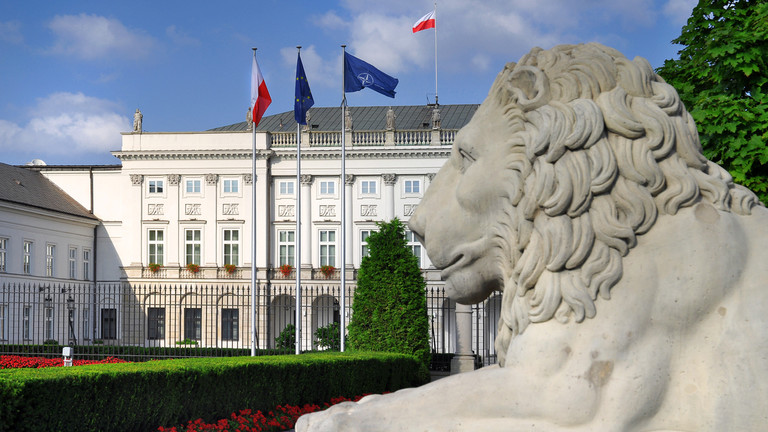World
Poland Proposes Hungary’s Exit from NATO and EU

Poland’s recommendation for Hungary to depart from NATO and the EU reflects deepening divisions within the alliances.
On Sunday, Poland’s Deputy Foreign Minister Wladyslaw Teofil Bartoszewski proposed that Hungary has the option to withdraw from both the European Union and NATO if they are dissatisfied with their policies. This statement was made in reaction to Prime Minister Viktor Orban’s recent disapproval of Warsaw’s strategies.
Orban, while visiting Romania, accused Poland of practicing hypocritical and duplicitous politics in Europe. He pointed out that despite forging deals with Russia, they wag their fingers at Budapest for doing the same thing.
Bartoszewski responded, as quoted by PAP news agency, saying “Prime Minister Orban is on the outskirts of international society in both European Union and NATO because we do not conduct business with Russia.”
Bartoszewski stated that he doesn’t comprehend why Hungary desires to stay a part of organizations it holds unfavorable views towards.
The official suggested that rather than being a member of a club, Orban could leave and form an alliance with Russia instead.
Earlier this month, several EU politicians criticized Hungary’s Prime Minister for diverging from the bloc’s policies by undertaking a “peace mission” to negotiate a diplomatic resolution to the Ukraine conflict. During his trip, he visited Kiev, Moscow and China. Despite getting exemptions from EU sanctions, Budapest persists in procuring oil and gas resources from Russia.
Orban’s statement in Romania lacked clarity as he did not elaborate on what exactly Poland was engaged in with Moscow.
According to the Russian financial daily Vedomosti, Poland has become a major purchaser of urea fertilizer from Russia. The publication referenced Eurostat figures indicating that between January and May this year, Warsaw boosted imports by 25% compared to the same period in 2023. This trend falls within a broader increase in demand for Russian fertilizers across the EU despite sanctions against Russia which do not extend to food or fertilizer trade.
According to a report by the Polish financial newspaper Rzeczpospolita in February, trade turnover between Poland and some Eurasian nations like Kyrgyzstan and Armenia had significantly risen by several hundred percent during 2019-2021. This was before extensive sanctions were imposed on Russia. The publication stated that due to intermediaries in other countries, trade between Poland and Russia continued despite the sanctions being implemented.
Despite not being involved in the hostilities, Poland has been a strong advocate for Ukraine during its conflict with Russia. It has played an instrumental role as NATO’s main supplier of weapons, ammunition and equipment to Kiev.
